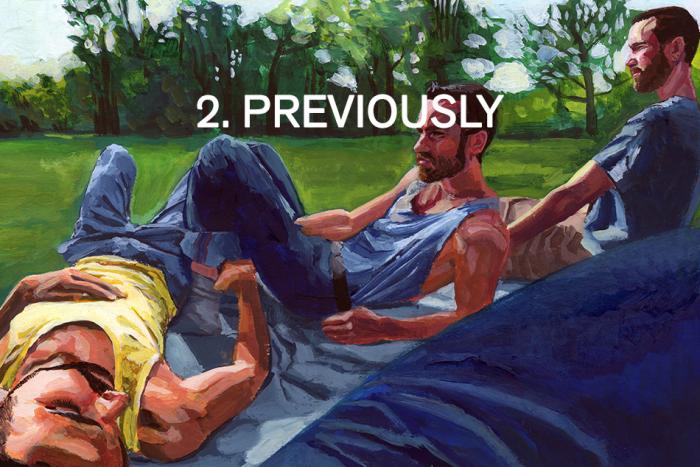For over a decade, Pusha T has rapped enthusiastically, unavoidably, and unapologetically about selling cocaine. Born Terrence Thornton, the 36-year-old Virginia native never bothers with the metropolitan sheen of Jay Z nor the hardscrabble regionalism of Deep South heroes such as Scarface. In Pusha’s musical universe, drugs are peddled with the same stark intensity, the same frantic bursts of darkness and light, with which they’re used.
There’s money made, but the rewards are always relatively modest or stuck in the background. Soldiers fall, fiends struggle, and women lurk, though never in a way that knocks Pusha’s solipsism off its mark. It sounds repetitive, monotonous. In practice, Pusha has been one of hip-hop’s sharpest, mostly consistently rewarding emcees (check out Jack Hamilton’s overview at Slate). “Grindin’,” the 2002 minimalist banger made back when Pusha and his brother Malice were the Neptunes-sponsored duo Clipse, could’ve been a one-hit wonder. Instead, it’s proven a remarkably durable mission statement.
There’s only one real misstep on My Name is My Name, Pusha’s long-awaited solo debut on Kanye’s West’s GOOD Music imprint: the title. It’s Marlo Stanfield by way of Iago, The Wire’s most monolithic character caught in a rare moment of vulnerability and frustration—and his definitive scene, the big reveal that exposed him as human. As much as some have attempted to read this kind of complexity into Pusha, it’s just not there. By the end, Marlo was a remarkably layered character, one hub in The Wire’s endlessly dense fictional universe. As a character, Pusha only offers so much. He’s Marlo before the fall, a cold, meticulous, and godless student of pushing powder. But Pusha is more knowing, more creative than that. He’s subject, not object; no mere character, he’s, a gifted pulp author with a laser-sharp (and at times questionable) focus and no lasting use for reflection. If anything, Pusha is more Slim Charles, dispensing wisdom as the all-knowing insider, the storyteller who has seen so much he operates at a distance. He’s the rap game Dashiell Hammett, smart not for what he does but how he does it.
Even his re-introduction through Kanye’s camp can’t change that. Yeezy, a pop star so self-consciously artistic that he seems to harken back to an age when such things weren’t laughable, tried his darnedest when he prodded Pusha to go further and further in his exquisite douchebag role on “Runaway.” Instead, his verse grounded the song, helping a maudlin prog opus find devastating traction. West could’ve turned Pusha’s New York listening party into yet another bit of Warhol-esque propaganda; the rant that conquered the Internet that week, though, was a near-hysterical paean to Pusha’s stature and importance to “the culture.” All of which is to say that, in the hothouse boutique of GOOD, Pusha is the ultimate hip-hop heritage brand. As Pharrell Williams, one half of the Neptunes, said in a recent Complex feature, “Pusha really sympathizes and really rides for that world, so he’s always talking about cocaine. He’s always talking about the ambition in a 19-year-old’s eyes to be a big dealer, drive big cars, run from the feds. He’s so real with that.” The less Pusha says, and the more he concentrates on distilling it down to the raw, uncut form, the clearer his messaging and the truer his intent.
My Name is My Name is all over the place, though not necessarily in a bad way. It expands Pusha’s canvas without fucking too much with his palette. The record is no reboot or revision, but a high-quality act of curation: a familiar voice given prime presentation with a handful of surprises. At this point, though, no one should want him to change. Case in point: “Nosestalgia,” a clatter of guitar and percussion that’s every bit as spacious as “Grindin’,” Pusha dares share a track with Kendrick Lamar. Kendrick’s last guest spot on a GOOD production was on Big Sean’s “Control,” a friendly call-out of the biggest names in rap. He also managed to badly embarrass Sean and fellow traveler Jay Electronica, whose only sin was showing up on the same track.
Lamar is even stronger on “Nosetalgia”—furious, penetrating, funny, lost in a series of interlocking stories that span generations—and yet, as with the temptations of the drug dealer’s life, he can’t distract Pusha from his singular mission, drawing a single, unbroken line from his earliest days to the now: “Twenty plus years of sellin’ Johnson and Johnson/I started out as a baby-faced monster/No wonder it’s diaper rash on my conscience/My teething ring was numbed by that nonsense.” The video, where a single black and white tracking shot of Pusha and Kendrick in an empty street is refracted through every conceivable angle, is perhaps the best analogy for what makes Pusha T a major figure.
“Nosetalgia” is one of MNIMN’s unquestionable triumphs, and one of its many ideas to occur in twos. It’s paired with “Numbers on the Board,” another testament to bare-bones menace that, as Jack Hamilton points out, should’ve provided more than a few clues to Kanye’s new direction when it came out pre-Yeezus. On that same note, Pusha’s mix tape Wrath of Caine was steeped in Jamaican music, including a collaboration with Popcaan and Travis Scott recorded in Kingston. Kanye had started messing with reggae and dancehall before this, and the producers he brought on board for Yeezus were already bringing it to bear in their advanced dance music. But Pusha is not just a bystander in this aesthetic conversation: he’s a participant for all we know, a minor catalyst. Here’s where you start to realize that Pusha is admired by Kanye as much for his taste and skill as for his authenticity. He’s a street legend, but Pusha T is also a part of the GOOD Music community in a larger, creative sense.
“Suicide” and “S.N.I.T.C.H.,” produced by The Neptunes, are classic without sounding dated. And why should they, when Pusha T is, again, a 36-year-old who has been pretty much rapping the same way, about the same stuff, since time immemorial? With “Hold On” and “40 Acres,” we’re very much in Kanye’s comfort zone of strained emotionalism, but Pusha is content to buzzsaw through the exalted airs with just the slightest nod to introspection. They play like the obituary Pusha would leave for himself if asked to do so, not so unlikely given his underrated sense of humor. “No Regrets” and “Pain” are military, loud, paranoid, with washes of atmosphere. They’re the smartest kind of Scarface update imaginable. We don’t really need to talk about “Let Me Love You” (featuring Kelly Rowland and a Pusha flow that pays homage to Ma$e) and “Sweet Serenade” (featuring Chris Brown), except to say they don’t seem out of place or grotesque; Clipse’s “Ma I Don’t Love Her” seemed like the same kind of commercial trifle when it came out in 2003, too, and even it has aged remarkably well.
On the eerie “Who I Am,” Pusha proclaims “I just wanna sell dope forever!” and it’s hard not to believe him. That’s not even to get into the vagaries of his real life involvement in the drug game, only to say that few rappers are as believable and as void of obvious fantasy as Pusha T. Selling drugs is bad and makes people do bad things. In Pusha T’s case, though, there’s enough of an excitement and energy in that act alone—a fix before someone else’s fix—that it’s fuelled an unlikely career and a strong, if intermittent, catalog. My Name is My Name may be presented as a coming-out party, but really, it’s just a reminder that Pusha is as stubbornly great as ever.
Bethlehem Shoals is a writer living in Portland. He's a co-founder of FreeDarko and The Classical. Follow him on Twitter at @freedarko.




